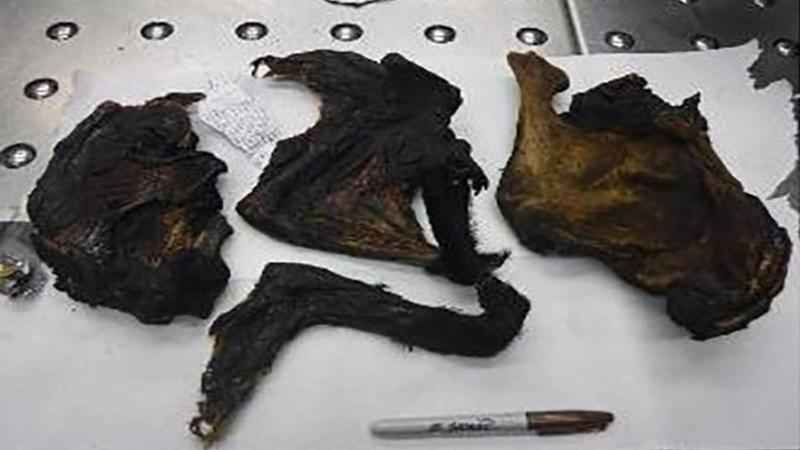More than 100 pounds of bushmeat seized at MSP

CBP officers in Minnesota say they've seen an uptick in travelers arriving with bushmeat, which can carry disease causing sickness or even death.[U.S. Customs and Border Protection]
Federal officials say a trend could lead to another disease outbreak.
According to U.S. Customs and Border Protection (CBP), more than 104 pounds of bushmeat were seized during the final week of 2021 at Minneapolis-St. Paul Airport (MSP).
The term bushmeat refers to meat that is raw and minimally processed — such as smoked, dried, or salted — and comes from animals such as bats, nonhuman primates, antelope and cane rats, which are also known as grasscutters. Due to the way the meat is processed, the meat isn’t considered noninfectious, which means it can become infected with germs that can cause sickness, such as the virus that causes Ebola.
Although Ebola isn’t generally spread by food, officials say it can spread through direct contact with the blood or body fluids, or a person who is sick or has died from Ebola. However, officials say human infections have been associated with hunting, butchering and processing of meat from infected animals in Africa.
According to CBP, U.S. citizens and lawful permanent residents have returned from Liberia and declared "fish" on their written and verbal declarations, however, inspections have revealed more than fish being brought in.
Augustine Moore, the area port director for Minnesota, said agriculture specialists stopped a passenger coming back from Libera last week, and asked if he had any bushmeat. He said he had "parts of a monkey," but Moore said there were two primate arms and primate rib material.
The Centers for Disease Control and Prevention (CDC) states it’s illegal to bring bushmeat into the United States, and violators can be fined $250,000 for bringing it into the country. CLICK HERE to learn more about bushmeat.